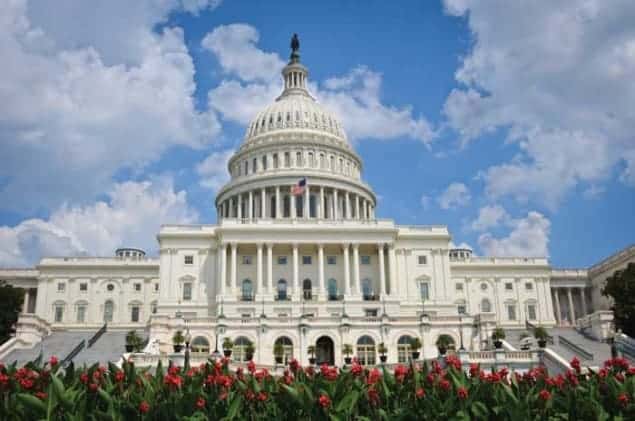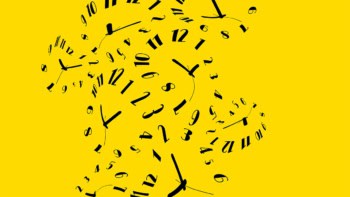The results of the recent US presidential election reveal that the traditional model of scientific authority is defunct, says Robert P Crease

On 20 January 2017 a man will be sworn in as president of the US who is on record, via Twitter, as having declared that global warming is “bullshit” and a “hoax”, and that vaccines cause autism.
On the surface, such pronouncements may not sound like special cause for alarm. After all, US presidents and presidential candidates before Donald Trump, from all political parties and persuasions, have downplayed or ignored scientific findings and their relevance for political action. George W Bush, for instance, hemmed and hawed evasively for two terms on whether the science of global warming was strong enough to warrant changes in US energy policy, and the issue clearly embarrassed him.
This time, however, things are different. First, Donald Trump’s dismissal of science is not evasive or sheepish but confident and proud. Second, his brazen dismissal of authority was an important part of his appeal to voters, who supported him over a candidate – Hillary Clinton – who said “I believe in science.”
I know I recently wrote about science and US politics and some readers might wonder why I’m bringing the topic up again. But what just happened is so far from business as usual – with such a huge potential impact on US science – that it would be irresponsible for anyone concerned with the state of science not to probe the implications.
Over the years, the US and other nations have assembled a huge research infrastructure that has made great contributions to human life, from providing an understanding of the origin and structure of the universe to increasing health standards and reducing air pollution. Still greater challenges lie ahead, such as finding ways to keep epidemics and climate change under control.
Never before has it been so urgent to incorporate the findings of this research infrastructure into policy decisions, nor so costly and dangerous to ignore such findings. Yet the soon-to-be US president is forthright about the fact that he does not care about those findings, at least regarding climate change. And his election shows that a large fraction of the US electorate does not care either.
It is true that, aside from his remarks on climate change, Trump has said little about science. But there is every reason to think he will be as prone to lies and distortions there as on such things as crime, immigration, Obama’s citizenship and Trump’s own election. There is also every reason to think that the electorate will continue to ignore his failure to take informed positions about climate change and other vital matters.
The 2016 US presidential election thus reveals that the traditional model of the authority of science is defunct. What was that model, why did it break down, what are the dangers and what can be done?
The traditional model
When I talk about “authority”, I don’t mean anything to do with authoritarianism, but simply the ability to have people voluntarily comply with a command or respond to the implications of an outcome. Authority comes in several kinds. A mentor, for instance, has authority because we accept that senior, experienced people have better knowledge. Similarly, the authority of a clerk in a motor-vehicle office comes from us accepting the legitimacy of the bureaucracy for which that person works.
The traditional model of the authority of science pictures it as having yet another source: the assumption that scientists are reliable guides to the world’s inner structure. Confidence that the world has an inner structure used to be anchored in religion and the belief that the world was God’s creation. The thrilling discovery at the dawn of modern science in the 16th and 17th centuries was that the contours of this inner structure did not have to remain mysterious to God’s creatures, but could be explored and, at least partly, understood. Governments supported scientists, their procedures and instruments, as it was assumed that many tasks of governing ultimately had to adapt to this inner structure.
When science fails to be authoritative, in this traditional model, one of three things is happening: the scientists are not communicating well; their message is not understood; or some other value is involved. A government may, for example, decide to ignore a report that genetically modified grain is safe because the report is unclear or over their heads – or because of metaphysical objections to transforming life forms or economic concerns about the impact.
Breakdown
The US has a solid scientific infrastructure and its spokespeople have communicated the dire implications of things like heightened global temperatures, rising sea levels and the perils of disease well. Trump and his followers are surely literate enough to understand this. When they dismiss scientific findings as a “hoax” and “bullshit”, they are not mishearing or poorly understanding the findings, nor seeing them as disconnected from social goals. Rather, they are straightforwardly rejecting them as interfering with social goals.
Such people may not be a majority of US voters, but they now hold the reins of power. The person they elected can sow the seeds for a world where more people than ever will distrust science, and expertise in general. In this world, people will feel empowered, for instance, to take as authoritative meteorologists who report the average temperature outside, but to reject meteorologists who report the average temperature outside all over the globe. They will feel free to reject evolutionary biology as a science, but free to accept medicines whose development depended on it.
Causes
The reason for the collapse of the traditional model of scientific authority has to do, I think, with US politicians exploiting a sense – among frustrated Americans – that the fruits of science are mainly serving wealthy corporations and special elites. Many of Trump’s statements are coded references to this sense. This can make scientific findings vulnerable to appearing to be just the opinion of one elite interest group. Several factors add to this vulnerability.
One is that the public never deals directly with scientific findings, but only as retailed – collected, reported and otherwise mediated by academies and publications. Such institutions are never neutral, and can be tainted by their own agendas or the agendas of those who support them. Daniel Sarewitz, a professor of science and society at Arizona State University, cites this as a major reason for the declining authority of what he calls “the scientific enterprise” (The New Atlantis 49 4). Trump and his followers have indeed accused climate-change researchers of such taint.
A second reason is that the abstract character of the scientific process and its results can make it seem an insular enterprise, remote and disconnected from everyday concerns. This seems to be what enables politicians, including Mitch McConnell, the Republican leader in the US Senate, to dodge incorporating scientific findings into their policy decisions by invoking the phrase “I am not a scientist.”
A third factor is that the very success of modern science and technology promotes a kind of magical thinking, encouraging people to believe they don’t need to make painful trade-offs in decisions about energy, nutrition and environmental conditions. Findings that suggest such trade-offs are necessary may make people feel like science is trying to take things away from them – imposing “job-killing restrictions” as Trump put it in the case of climate change.
Finally, the scientific infrastructure tends to withdraw from public view. As I’ve reported before, a US congressman once remarked, “Why do we need Landsat satellites when we have Google Earth?” The public can use products of science without seeing the processes that made them possible, making those processes appear superfluous.
Dangers
I know many people will think nothing needs to be done. Some will assume that the consequences will be minor, sure that Trump will backtrack and never do anything as unhinged as his insincere public commitments imply. Others will advocate doing nothing for fear of insulting and alienating the people to whom Trump appeals. Still others will be content to wait for the next election, regarding the traditional model of scientific authority as a natural thing that will shortly reassert itself, like a sturdy self-righting boat momentarily knocked over by a rogue wave.
But this time it is different. Yes, the traditional model of scientific authority and expertise is not entirely eroded; people will still consult engineers and go to doctors, and some science will thrive. Yet even if Trump pragmatically reverses his more incendiary promises, as he is sure to do, the transformation of scientific findings into opinions that can be set against other opinions with apparent equality will have done long-term damage to science policy. With Tweets now the argumentative coin of the realm in Trump’s world, the atmosphere in which science has to promote itself is corrupt. I see several dangers.
One involves what gets federal funding. What will look attractive is science relevant to the battlefield, marketplace or national symbolism (such as NASA creating manned space missions to Mars rather than climate-monitoring satellites). What will suffer is “unsexy” fundamental research and anything relevant to political issues, such as climate change, studies of gun violence, or other instances of what Trump has labelled “politicized science”. But this, of course, is the science we need most.
Another involves cultural repercussions. As veteran TV news anchor Dan Rather put it in a blog for Scientific American, “Science bolsters our global stature by its institutionalized respect for the truth, its evidence-based decision making, and its willingness to accept differing opinions when the facts dictate them.” I would even say that the right of free speech is worthless in the absence of evidence-based facts.
The critical point
I regret having to write again about science and US politics, but I don’t apologize. An atmosphere that’s bad for US science is bad for science everywhere. Like climate change itself, the collapse of the traditional model of science authority has human causes, and only humans can do something about it.
The standard fixes – improving science communication and bolstering scientific literacy – will no longer be effective. Nor will it help to champion science as a “cause”. This turns science into something that calls for allegiance rather than respects it as a process that helps illuminate problems and possible solutions. If you have to start worshipping your guides, you’re in trouble.
Instead, attempts to restore the authority of science will have to begin by abandoning the traditional model. They will require finding ways to discourage lazy and ideological thinking, to curb the human appetite for fake assertions, and to entice citizens to look past private interests and to regain an appreciation for the natural world – to counter, in short, the very things that Trump rode to the presidency.
“Science critics”, as I called them in my first column back in 2000, who constantly challenge inauthenticity, ridicule pretence and expose those who speak in code, will be needed. We must find new ways to do this work and to explain why we can’t rely on ideologies to cope with nature. We will also have to create new methods to exhibit the infrastructure of science and its effects.
Just as the current erosion of a sense of common humanity makes it more important to highlight why racism, sexism and xenophobia are so dangerous, so the collapse of the traditional model of scientific authority makes urgent the need for a greater appreciation for a sense of a common natural world, and how scientists study it.
What’s required, in short, is greater public exposure of the foundations of science. That’s how different it is this time.



